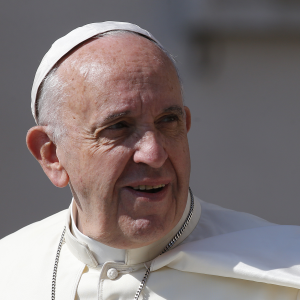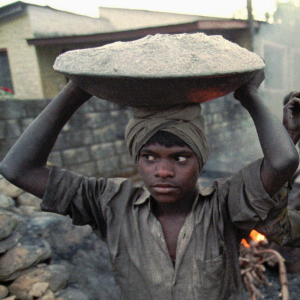Pope Francis has issued a clarion call for a renewed and united global effort to eliminate the root causes of child slavery after the United Nations estimated that 168 million child labourers are being exploited by all manner of industries from agriculture to manufacturing.
The abuse of children for labour deprives millions of youngsters of their fundamental rights and exposes them to grave dangers, the Pope said in an address marking the World Day Against Child Labour on 12 June.
The UN’s International Labour Organisation is urging businesses to guarantee their supply chains are free from child labour. It also said businesses should address poverty – often the root cause of child labour – by increasing adult workers' wages enough to allow them to send their children to school.
In January of this year, one of the world’s largest food manufactures, Nestlé, failed in its bid to get the US Supreme Court to throw out a lawsuit seeking to hold them liable for the alleged use of child slaves in cocoa farming in the Ivory Coast.
Children younger than 15 were found to be working on cocoa farms used by Nestlé, a report by the Fair Labour Association (FLA) found. Researchers are reported to have visited 260 farms used by the company in Ivory Coast between September and December 2014. The researchers found 56 workers under the age of 18, of which 27 were under 15.
At one farm in the Divo district of the country, the FLA found evidence of forced labour, with a child worker not receiving any payment for a year.
Child workers were found at seven per cent of the farms visited, the FLA report, which was commissioned by Nestlé to investigate workers rights on its west African farms in 2013 amid international pressure, detailed. Nestlé’s code of conduct prohibits the use of child labour in its supply chain.
Nestlé has repeatedly stated its commitment to tackling child labour in its supply chain, and has already taken action to address the issues raised in the FLA report. These actions include increasing access to education, stepping up systems of age verification at farms and increasing awareness of the company’s own code of conduct.
The ILO estimates there are as many as 59 million African children, aged between five and 17, involved in hazardous work.
Child labour in the tobacco industry is prevalent in Indonesia, found a report by Human Rights Watch published in May.
Children as young as eight are routinely exposed to nicotine, toxic pesticides and extreme heat as they work cultivating and harvesting tobacco on hundreds of small-scale farms across the country, says the report.
Indonesia exports around 137 million of tobacco each year. Human Rights Watch say that the failure of domestic and international buyers of Indonesian tobacco to track their supply chains means it is near impossible to endure products are not made with hazardous child labour.
The ILO estimates there are up to 1.5 million children working in Indonesia’s agricultural sector, which includes tobacco as well as rubber and palm oil.
Cobalt used in smart phones is mined by children as young as seven working in dangerous conditions in the Democratic Republic of the Congo, an Amnesty International investigation revealed. The human rights group said it had traced the cobalt used in lithium batteries, which is sold to 16 multinational brands, to mines where children were working in life-threatening conditions for as little as $1 a day. Apple was amongst the household name brands said to be evaluating where it buys its cobalt from following the claims.
Uganda does not officially have a significant gold mining industry, yet Dutch research company Somo and the Stop Child Labour Coalition recently reported a thriving illegal gold trade in the country. Uganda, they reported, exports up to 2.8 tonnes of gold from illegal artisan mines each year. Children are said to make up 30 per cent of those mining illegal gold in the country.
Early this year, the Catholic Church in Uganda was accused of profiting from child labour. A nurse with the UN Refugee Agency (UNHCR) in Uganda alleged that children as young as 10 are working on a tea plantation in south-west Uganda, from which the Catholic Church is profiting.




 Loading ...
Loading ...